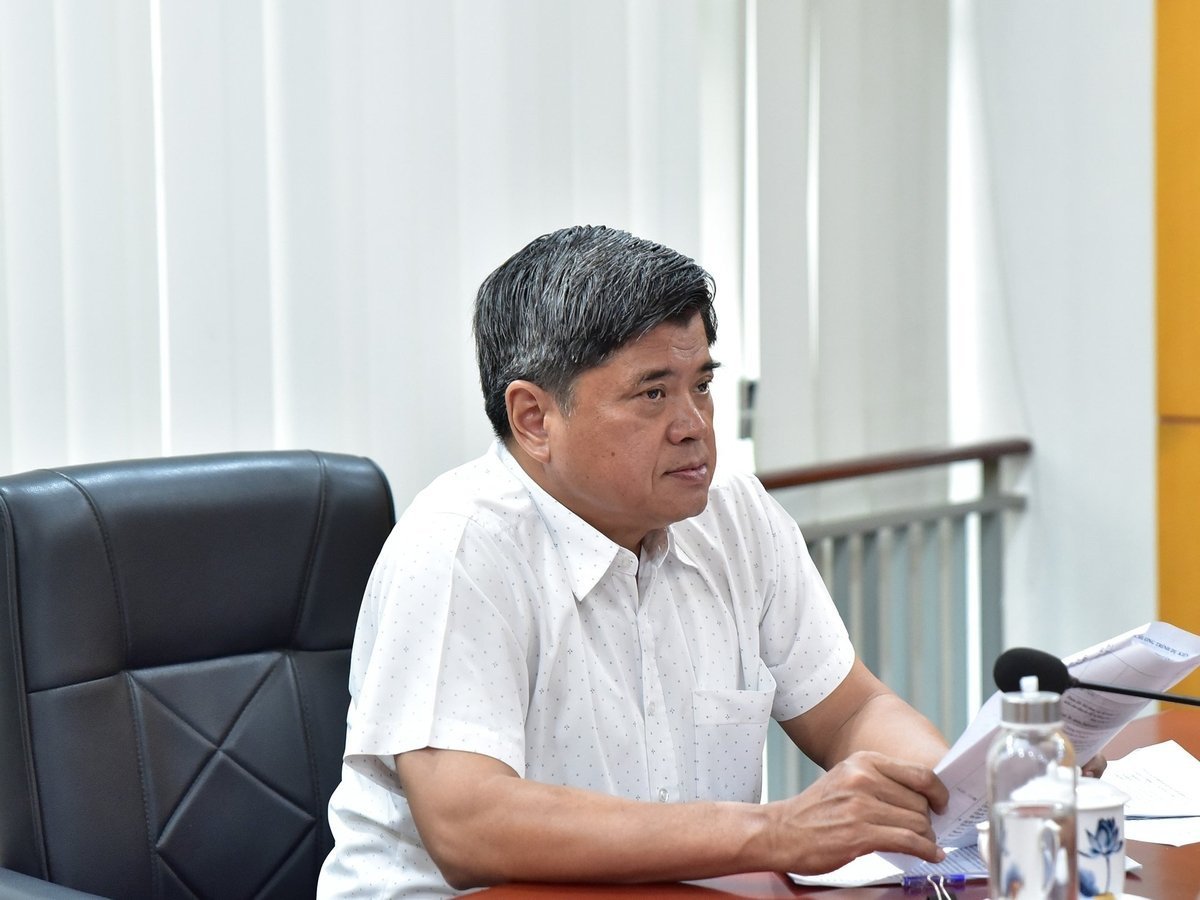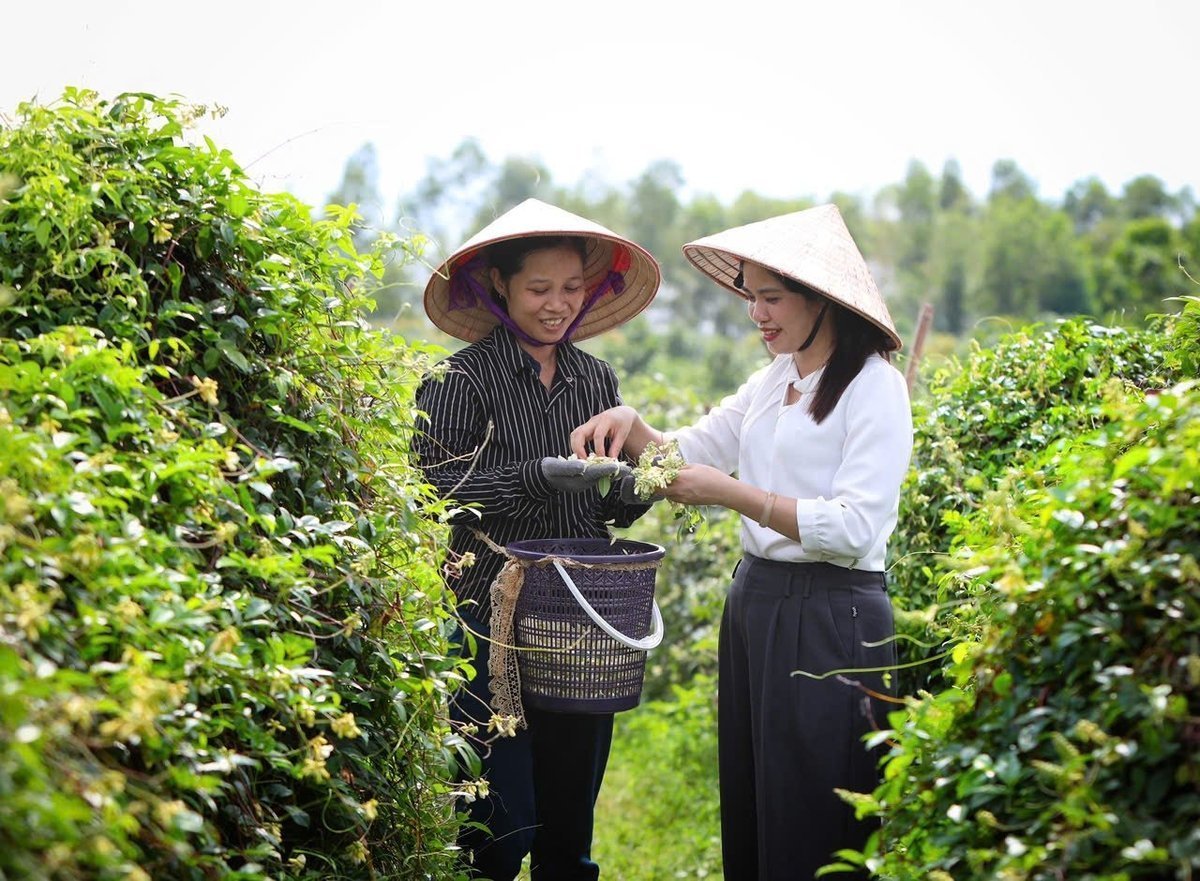November 15, 2025 | 17:02 GMT +7
November 15, 2025 | 17:02 GMT +7
Hotline: 0913.378.918
November 15, 2025 | 17:02 GMT +7
Hotline: 0913.378.918
On the occasion of the ministerial-level forum on the OCOP model between Vietnam and more than 14 African countries held on July 15–16, Agriculture and Nature Newspaper interviewed Deputy Minister of Agriculture and Environment Tran Thanh Nam about the OCOP program in Vietnam after seven years of implementation and the program’s direction in the years ahead.

Deputy Minister Tran Thanh Nam chaired the meeting on the preparations for the forum and the field visit of the delegation of 14 African ministers to Vietnam. Photo: Kieu Chi.
Dear Deputy Minister, how has the OCOP program aligned with Vietnam’s rural development and agricultural transformation orientation, and what makes OCOP particularly significant in connecting traditional production with current market demand?
The One Commune One Product program, abbreviated as OCOP, is a rural economic development initiative implemented under Vietnam's National Target Program on New Rural Development. OCOP aims to unlock the unique potential and advantages of each rural region, from land resources and local specialty agricultural products to indigenous knowledge and traditional cultural values. More importantly, it fosters a community-gathered spirit, a factor that creates multidimensional value for the products.
After nearly seven years of implementation nationwide, OCOP has helped expand the functions of the agricultural sector. In the past, agriculture was primarily viewed through the lens of production; today, its role has extended to environmental protection and ecological conservation, rural landscape renovation and maintenance, development of geographical indications, and especially laying the foundation for agritourism and rural tourism. These values mean that OCOP products not only meet consumer needs but also offer cultural and tourism experiences and identity to modern consumers.
During the implementation process from 2018 to today, what major changes have you observed, especially in empowering rural communities?
Since 2018, over 16,000 products have been officially recognized as OCOP products, with around 9,000 producers participating, including more than 3,000 cooperatives. This is a very encouraging result, demonstrating the strong reach of the program.
The first and most important change is the shift in production mindset among the people. Previously, households mainly produced based on experience, focusing solely on making products. Now they have begun to pay attention to the market, emphasizing quality, design, food safety, and brand promotion. Many OCOP producers have learned to apply information technology, organize livestreams to introduce products, and reach customers via digital platforms. It can be said that they have undergone a fundamental shift toward more professional and modern production thinking.
Second, OCOP has played an important role in reorganizing rural production. From scattered and fragmented production, people have formed community-based linkages, coordinated among household groups, businesses, and production facilities. As a result, many small and medium enterprises originating from OCOP products have begun to emerge, leading the market and affirming their position. This is a very positive signal for sustainable rural economic development.

Director of Danh Lien Chung Ginseng Production and Consumption Cooperative (left) instructs cooperative members on harvesting ginseng flowers. Photo: Pham Minh.
Third, OCOP has strongly extended to disadvantaged areas, including areas inhabited by ethnic minorities. Among the approximately 9,000 OCOP producers today, up to 40% are women and 17.11% are ethnic minorities. Many women and ethnic minority individuals have become heads of production facilities, directly owning products, building brands, and increasing the value of goods. This is a standout feature of OCOP, not only developing the economy but also promoting participation and truly empowering vulnerable groups in society.
In your opinion, what policy innovations or program-expansion directions are needed in the time ahead to continue boosting rural development while preserving Vietnam’s cultural values?
In 2022, the Prime Minister issued Decision No. 919/QD-TTg, dated August 1, 2022, approving the One Commune One Product (OCOP) Program for the 2021-2025 period. Currently, under the Prime Minister’s direction, the Ministry of Agriculture and Environment is advising on the drafting of the National Target Program on New Rural Development for 2026–2035. Within that, OCOP product development remains identified as an important pillar. The orientation for the upcoming period includes three main components:
First, continue to leverage existing advantages in rural areas, especially agricultural resources, indigenous knowledge, and cultural heritage, while linking OCOP products with rural tourism development. This is a vast and rich potential area that needs comprehensive exploitation. We believe OCOP products should come with cultural values, for example, folk songs and regional dances. In that way, the products carry not only economic value but also cultural significance, allowing for higher added value and long-term sustainability.
Second, we aim to develop the OCOP program according to the green economy, circular economy, low-emission economy, and environmentally friendly models. This is an irreversible trend. Future OCOP products must not only meet consumer needs but also comply with environmental standards, contributing to the nation’s sustainable development goals.
Third, strengthen vocational training and agripreneurship in agriculture and rural areas. We clearly identify the need to focus training on older workers and those returning from industrial zones or cities. They are a very promising force in forming new production facilities and starting innovative ventures with practical and competitive OCOP products.
Thank you, Deputy Minister!
Translated by Huong Giang
/2025/11/14/1144-0-nongnghiep-231139.jpg)
(VAN) Ban Bo commune (Lai Chau province), located in the buffer zone of Hoang Lien National Park, always pays attention to communication to ensure local residents comply with legal regulations on forest management and protection.

(VAN) The Mekong Delta is shifting toward circular and low-emission cultivation to protect coconut yields, quality, and competitiveness in global markets.

(VAN) From the love for their homeland, young people in Moc Chau established a cooperative, bringing the enthusiasm of the Youth Union into developing modern and sustainable agriculture.
/2025/11/15/1235-1-100331_814.jpg)
(VAN) Over three decades of partnership, WWF-Viet Nam has aligned itself with the 80-year journey toward sustainable development of the Ministry of Agriculture and Environment, continuing the aspiration to preserve nature.
/2025/11/14/1450-1-144946_705.jpg)
(VAN) Connection and experience-sharing activities jointly implemented by ALiSEA have contributed to spreading a spirit of cooperation and promoting the development of agroecology.

(VAN) The Food Waste Recycling Handbook, launched in Ho Chi Minh City helps the community reduce waste, protect the environment, and promote a green lifestyle.

(VAN) The activities under the model help reduce disaster risks while encouraging children’s participation in climate-change adaptation and environmental protection.